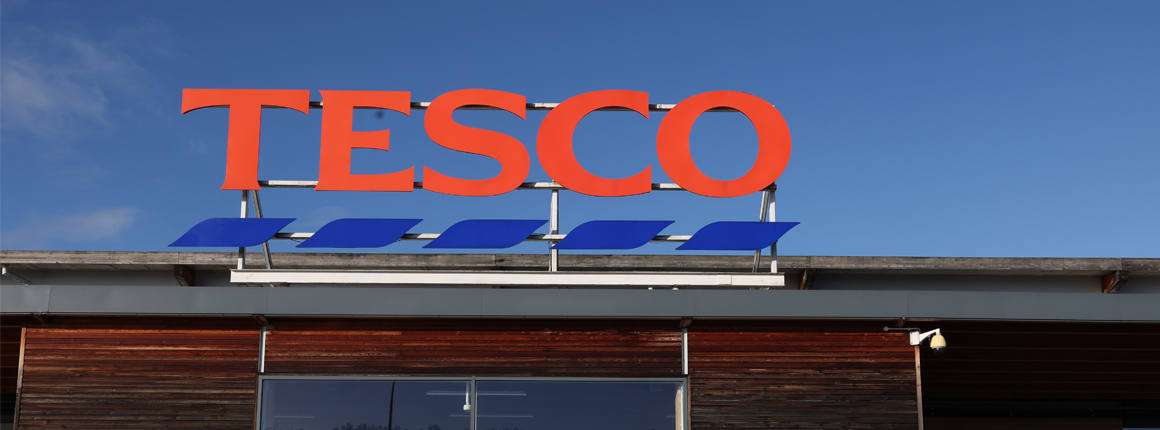Tesco faces lawsuit over 'cycle of forced labour' in supplier factory – Supply Management

A lawsuit against Tesco claims garment workers were forced to work in “dangerous and insanitary” conditions to produce clothes for the supermarket.
Tesco is being sued by 130 former garment workers who alleged they suffered “negligence and debt bondage” at a garment factory used by the company in Thailand.
The workers produced jeans, denim jackets and other garments for Tesco's F&F clothing range at the VK Garments factory in Mae Sot between 2017 and 2020, working in roles including cutting, tailoring, and packing.
The UK lawsuit claimed workers were “trapped in a cycle of forced labour and debt bondage”, were paid as little as £4 a day, and were made to work seven day weeks. Workers felt they were unable to call out the “dangerous and insanitary living and working conditions” due to fear of being blacklisted.
Tesco and Ek-Chai Distribution System Company, its Thailand subsidiary up until 2020, are accused of negligence in allowing the conditions, while Intertek, an auditing compay, is accused of negligence for failing to identify the issues.
Oliver Holland, partner at law firm Leigh Day representing the plaintiffs, said: “The alleged treatment of vulnerable migrant workers in the way they have described to us is totally contrary to the ethical image that Tesco seeks to portray in the UK – a company of this size should be taking steps to ensure that workers producing their products are not mistreated.”
The workers, migrants from Myanmar, were housed by the factory in “pitiful conditions” where they were forced to sleep on cement floors with no locks, walls or ceilings, Leigh Day claimed.
Rent and charges for immigration documents were deducted from wages, often leaving the workers short of money, meaning many turned to loan sharks, leaving them in “debt bondage with no alternative but to remain working at the factory in order to service the debts”.
Hla Hla Htay, who worked at the factory as a quality controller, said they had to work seven days a week and check up to 500 shirts a day. They claimed they were not allowed a lunch break, and were only permitted “one spoon of rice”.
The lawsuit further says Intertek, which was responsible for auditing the factory between 2017-20, did not “accurately identify” or report what was happening at the factory or its housing.
Holland continued: “The social auditing industry is seriously broken and the garment industry's reliance on social auditors like Intertek should end now and they should start to take greater responsibility for their supply chains to ensure endemic issues like forced labour are wiped out.”
A Tesco spokesperson said: “Had we identified issues like this at the time they took place, we would have ended our relationship with this supplier immediately.”
They continued: “Any risk of human rights abuses is completely unacceptable, but on the very rare occasions where they are identified, we take great care to ensure they are dealt with appropriately, and that workers have their human rights and freedoms respected.”
Intertek has denied any wrongdoing, claiming it had no contractual relationship with Ex-Chai, VK Garments or the claimants. It claims it conducted audits under industry standards and by auditors pre-approved by Tesco.
An Intertek spokesperson said: “As a responsible business, we take the matters that have been raised very seriously. We also note these matters are currently the subject of Thai and English legal proceedings, and therefore we are not able to comment while these proceedings are ongoing.”
Ex-Chai also denied liability, saying it had no involvement in the employment conditions at VK Garments.
This “Eyes on Trafficking” story is reprinted from its original online location.
 ABOUT PBJ LEARNING
ABOUT PBJ LEARNING
PBJ Learning is a leading provider of online human trafficking training, focusing on awareness and prevention education. Their interactive Human Trafficking Essentials online course is used worldwide to educate professionals and individuals how to recognize human trafficking and how to respond to potential victims. Learn on any web browser (even your mobile phone) at any time.
More stories like this can be found in your PBJ Learning Knowledge Vault.
EYES ON TRAFFICKING
This “Eyes on Trafficking” story is reprinted from its original online location.
ABOUT PBJ LEARNING
PBJ Learning is a leading provider of online human trafficking training, focusing on awareness and prevention education. Their interactive Human Trafficking Essentials online course is used worldwide to educate professionals and individuals how to recognize human trafficking and how to respond to potential victims. Learn on any web browser (even your mobile phone) at any time.
More stories like this can be found in your PBJ Learning Knowledge Vault.
